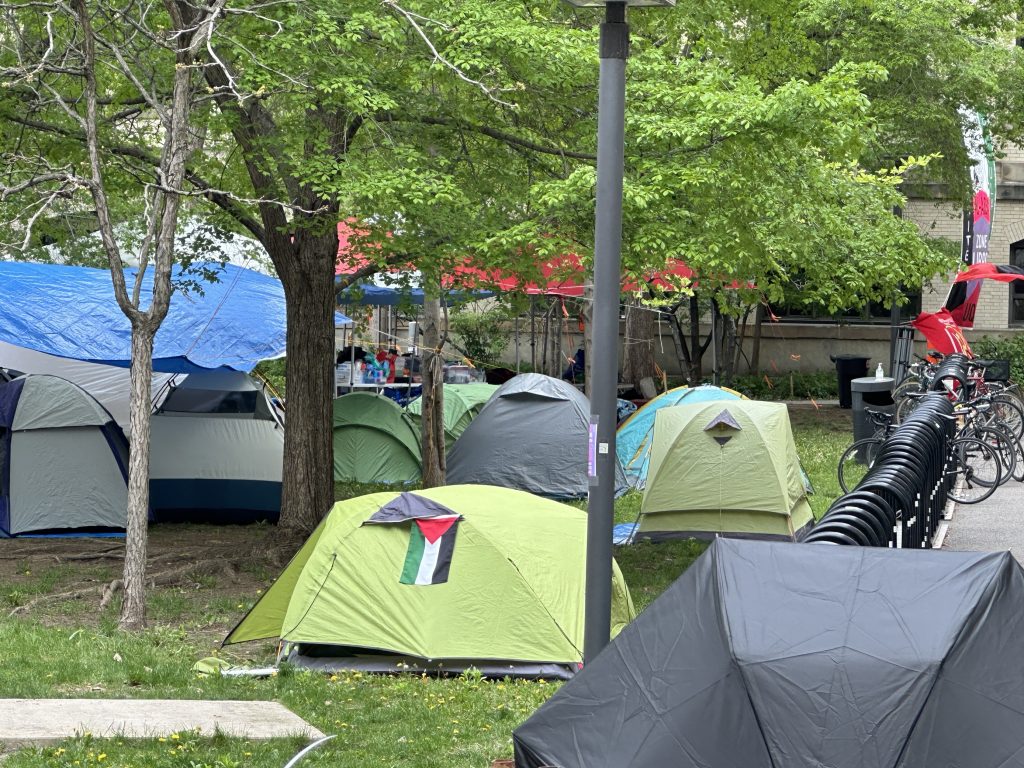Following derogatory comments from Montreal police, victim of harassment advocates against systemic sexism
Posted November 15, 2023 10:35 pm.
Last Updated November 15, 2023 11:45 pm.
“What people could have done was that they could have believed me.”
Belittled, mistreated, and unsafe is how former Concordia PhD student Anastasia Boldireff says she felt while seeking help from Montreal police as she faced criminal harassment. Instead, she says she had to deal with derogatory comments from police officers and the university taking away her teaching position. Her case has finally been brought up to the Quebec Human Rights and Youth Rights Commission and Quebec’s Police Ethics Committee after being filed more than three years ago in 2020.
“I felt like I was on trial for some offenses when I was the victim of crime,” said Boldireff.
“It makes sense to me why there are such low instance of reporting. The onus and the burden of proof remains on the victim, and the victim has to go through all of these meetings with this process. It takes years. We’re now what? Year four?”
In the summer of 2020, Boldireff filed an ethics complaint against five Montreal police officers. It would take more than three years, on September 20, 2023, for her first trial to come, where she testified about her experience with Montreal police officers while reporting criminal harassment by her stalker Adamo Bono in 2019.
Instead of help, she says she was met with comments such as “I’m sure being an attractive woman like you gets into trouble.”
And “He sounds like a good-looking man. A soccer player, you say? Why don’t you go out on a date with him.”
But a major point of her case being the pink mini skirt she wore, on which she says one officer commented saying, “Maybe you should consider what you were wearing.”
“Including the follow-up with the police, including when I went to the press, including my job loss from Concordia, all of these things, it was in a maelstrom of misery,” said Boldireff. “My entire life had changed. It was really difficult to talk about all of these things in court, and that was just day one.”
Boldireff says her teaching position at Concordia University was “taken away” during her victimization. She wishes the university also gave her support while dealing with the case against Bono. Boldireff is currently in arbitration with the university.
“Each time I wrote a complaint or follow up email about these events or had another meeting or another interview or attended any of these legal meetings, I was retraumatized,” she added.
Boldireff suffered freeze responses and even temporary blindness from chronic tensing in the neck – all symptoms of PTSD. She hopes her speaking out will bring systemic change in Quebec for other victims of criminal harassment.
“The shame shouldn’t be held by the victim of crime.“
“That they have to go ahead and find a new job in a new place. They have to uproot themselves because the system doesn’t do good enough job so that they can go to school, go to their jobs. Instead, you’re just having to move and being on the run.”
Anastasia Boldireff revealed the incidents with her stalker, Montreal police, and Concordia University pushed her away from Montreal. She is now a part-time lecturer at Georgian College in Barrie, Ontario.
“The system has to do better.”



